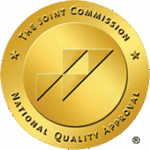At Sabino Recovery, Mindfulness Therapy is an essential part of our trauma-first, whole-person approach. Rooted in presence, compassion, and awareness, mindfulness practices help individuals slow down, reconnect with themselves, and heal at the nervous system level.
In our serene 140-acre desert retreat in Tucson, Arizona, clients from across the United States and around the world engage in mindfulness-based approaches that support deep emotional restoration and long-term resilience.
We’re experts in trauma-focused therapy for mental health disorders. Our team of specialists also use techniques like MBCT to treat addiction. Speak with our admissions team to start your recovery with us.

What Is Mindfulness Therapy?
Mindfulness Therapy is an evidence-informed approach that blends present-moment awareness with gentle emotional regulation skills. Rather than trying to “fix” thoughts or push away discomfort, mindfulness helps you notice internal experiences with curiosity and compassion.
At Sabino Recovery, Mindfulness Therapy supports trauma healing by helping clients:
- Develop self-awareness without judgment
- Build emotional regulation and nervous system stability
- Interrupt old patterns of fear, avoidance, or rumination
- Cultivate a deeper sense of safety in the body
Mindfulness at Sabino is not a single technique—it’s an integrated therapeutic approach used across many facets of our residential treatment program.
How Mindfulness Supports Trauma Healing
Trauma can disrupt the body’s natural ability to feel safe and grounded. Mindfulness helps rebuild that internal safety by strengthening your capacity to stay present, regulate emotions, and respond rather than react.
Within our trauma-first model, mindfulness:
- Helps calm hypervigilance and reduce emotional reactivity
- Supports nervous system regulation through breath and body awareness
- Encourages self-compassion and reduces shame
- Builds tolerance for difficult emotions without becoming overwhelmed
- Creates space for deeper therapeutic work in modalities like EMDR, Somatic Experiencing, and IFS
Mindfulness Therapy provides a foundation for the deeper trauma processing that occurs throughout your individualized plan.

Mindfulness-Based Approaches Used at Sabino Recovery
Our clinical team incorporates a range of mindfulness-based therapies selected according to your specific needs, history, and goals.
Meditation Therapy
Designed to support calm, clarity, and focus, meditation therapy may include:
- Guided meditation
- Breath awareness
- Healing imagery
- Body scans
- Grounding practices
These techniques help retrain the nervous system and build emotional steadiness.
Trauma-Informed Mindfulness
For those navigating trauma, mindfulness is adapted to feel safe and supportive. This may involve:
- Anchoring attention through the senses
- Slow, titrated awareness-building
- Gentle orientation practices to reduce overwhelm
- Body-based grounding to reconnect with safety
Mindfulness in Daily Living
Mindfulness can be incorporated into everyday activities, such as walking, eating, communicating, or engaging in therapeutic work. These skills help clients build presence and emotional regulation beyond structured sessions.
Integrating Yoga Into Mindfulness Therapy
While the former standalone yoga therapy page is being removed, yoga remains an important mind-body option available to clients at Sabino Recovery.
Yoga is used as a mindfulness-based, trauma-informed practice, helping clients reconnect with their bodies at a pace that feels safe.
Our approach includes:
- Gentle therapeutic yoga
- Breathwork (pranayama)
- Restorative and grounding postures
- Mindful movement
- Balance and stability practices
- Somatic awareness through guided movement
Yoga at Sabino is not performance-based; it’s a way to nurture presence, reduce anxiety, regulate the nervous system, and support embodied trauma healing.

Contact our Admissions Team Today
Mindfulness-Based Cognitive Therapy (MBCT) at Sabino
MBCT is one of several mindfulness-based modalities we incorporate when clinically appropriate. It blends traditional mindfulness techniques with elements of Cognitive Behavioral Therapy to help clients understand the relationship between thoughts, emotions, and bodily sensations.
MBCT may be recommended if you:
- Experience rumination or intrusive thoughts
- Struggle with anxiety or depressive symptoms
- Feel disconnected from your emotions or body
- Want structured tools to support long-term emotional stability
At Sabino, MBCT is customized within your overall treatment plan and used alongside trauma-focused therapies to support sustainable healing.
What to Expect in Mindfulness Therapy at Sabino Recovery
With more than 10 individual sessions with your care team weekly, over 50 one-on-one moments across a 35-day stay, mindfulness is often woven directly into your individualized schedule.
Sessions may include:
- Guided mindfulness practices with your therapist
- Mindful movement or breathwork
- Somatic anchoring techniques
- Nature-based mindfulness on our desert trails
- Trauma-informed meditation in individual or small-group settings
Mindfulness feels different for each client, and we adapt practices to your comfort level and pace.
Benefits of Mindfulness Therapy
Clients who engage in consistent mindfulness practices often experience:
- Reduced anxiety and emotional reactivity
- Greater emotional awareness and regulation
- Improved sleep, clarity, and focus
- Decreased rumination and looping thoughts
- Increased ability to stay grounded during stress
- Strengthened resilience and inner calm
- A more compassionate relationship with self
For many, mindfulness becomes a lifelong tool that continues well after residential treatment ends.

Who Can Benefit from Mindfulness Therapy?
Mindfulness Therapy is especially helpful for individuals navigating:
- Trauma or traumatic stress
- Anxiety or panic patterns
- Depression or rumination
- Dissociation or emotional disconnection
- Substance use as a coping mechanism
- Chronic stress or burnout
- Mind-body instability
Our team ensures each client receives mindfulness-based support that complements their trauma-first treatment plan.

I am so happy that I chose Sabino to begin my recovery. I have suffered for years from depression, anxiety, panic disorder, and PTSD. The programs that are offered here at Sabino have been truly phenomenal in helping me recover. I also appreciated the professional staff that are here on duty 24/7, which helps create a safe environment. Sabino Recovery uses effective “one on one” methods that meet each person’s individual needs because they evaluate and have a better understanding of your personal traumatic experiences. Thanks Sabino, I am truly grateful to you and the sabino family.
Mindfulness Therapy as Part of Sabino’s Residential Program
Our residential environment allows clients to step away from daily pressures and immerse themselves in a structured, deeply supportive healing process.
Mindfulness Therapy is integrated alongside:
- EMDR
- Somatic Experiencing
- IFS (Internal Family Systems)
- Neurofeedback
- Equine-assisted therapy
- Massage, acupuncture, and integrative mind-body options
- Individual, group, and family therapy
This holistic blend supports healing at the physical, emotional, and neurological levels.
Nationally Recognized & Accredited




Begin Your Mindfulness Healing Journey
If you’re seeking a trauma-informed approach to mindfulness, Sabino Recovery offers a peaceful, compassionate environment where you can reconnect with yourself and explore new pathways to wellbeing.
Whether you’re local to Tucson or traveling from across the country or abroad, our team is here to support your journey with presence, expertise, and warmth.







